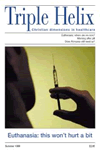You don't need a classical education to know 'doctor' means teacher. Doctors are expected to teach, and the traditional apprenticeship model epitomised by 'see one, do one, teach one' is only gradually being replaced by skills-based teaching aimed at competencies which can be assessed.
From my early days of teaching groups and lecturing I wanted to know if it worked. Did my students actually learn? Did I pitch it right? After a two-day course on teaching for doctors in 1986 I enthused to my schoolteacher husband about knowledge, skills and attitudes, aims and objectives. I was met with a glazed expression, and realised he had spent a year learning this stuff! But I could now assess what the students knew initially, could assess whether they were learning, and could evaluate my teaching.
Lifelong learning
How do we learn? We learn by mutual interactions and some pathways are obvious - we hope that patients learn from doctors, and that students or trainees do the same. Lifelong learning was not of course invented by the present government, nor even by the previous regime! A few years ago my attention was drawn to Isaiah 50: 4
'The Sovereign Lord has taught me what to say, so that I can strengthen the weary. Every morning he makes me eager to hear what he is going to teach me.'
I meet many patients and colleagues who are weary. The fact that the Sovereign Lord can continue to teach us so that we have something to give them is profound.
Learning from patients
Learning from a patient bearing a newspaper cutting about the latest new treatment can be challenging! But more subtle learning takes place when, for instance, I think of Georgina. Pregnant at 15 and in a hostel for single mums when we first met, then several unsatisfactory relationships during which time we tried to help her with acceptable contraception, and now at 24 contemplating social work training with an attractive and self-assured nine year old daughter. People can change. This encourages me when I meet Sophia, now aged 20, in whom I diagnose yet another sexually transmitted infection. She had 'crabs' at 14, and her 16th birthday present was primary genital herpes. Maybe she too will be able to take more control of her life and relationships, while we offer non-punitive health education and necessary treatment.
As I listen to patients, especially those from ethnic minority backgrounds, I learn about varying health beliefs and tailor advice accordingly. The woman who believes 'bad blood is building up inside her' when she has amenorrhoea with Depo-Provera injectable contraception requires more than the easy reassurance that having no periods is not harmful. If an explanation does not start with her health beliefs, she may discontinue the contraception method and risk pregnancy even though she does not want another child.
Learning from students
One of the nicest letters I have received came from a gynaecologist who a few years earlier had undertaken training in family planning under my supervision. She wrote that the clinic was 'a model of how medical care can be offered with time and respect'. She had learned attitudes along with knowledge and skills, and this feedback, as well as giving me a warm glow, was evidence that teaching attitudes is worthwhile.
A question from a trainee or student which I cannot immediate-ly answer is an occasion for learning as I resolve to look it up, or suggest we both go away and find out more.
Learning from colleagues
Mutuality in learning is perhaps easiest to recognise here. Clinical meetings or grand rounds where a difficult case is discussed are an obvious example of such learning. Informal discussion with colleagues at the end of a clinic encourages reflection on my practice. A colleague whose training background, skills and consultation style differ markedly from mine has been a stimulus for me to learn new ways of working with patients, particularly those who are distressed. My attitudes have been challenged and I am more willing to live with uncertainty.
Alongside this I have had the rewarding experience of seeing her enhance her practical skills with my supervision. I have used her feedback to improve further my teaching of practical skills. This mutuality in learning is extremely stimulating and enjoyable. Learning with colleagues can be fun! A workshop for doctors on teaching in small groups included one group observing another attempt to complete a jigsaw - it was amusing seeing who was bossy and who ploughed on without regard for anyone else. This was a vehicle for looking at differing learning styles and how we can tailor our teaching accordingly.
Continuing medical education (or continuing professional development) is of course here to stay. However the mere accumulation of these 'brownie points' does not equate with better practice any more than reading the Bible or attending church of themselves confer spirituality. We need to learn and to incorporate what we learn into our day to day practice. For most people this is best achieved through a variety of learning opportunities, including problem-based learning with our peers and in multidisciplinary teams. It is an exciting time to be involved in undergraduate and postgraduate medical education.
































